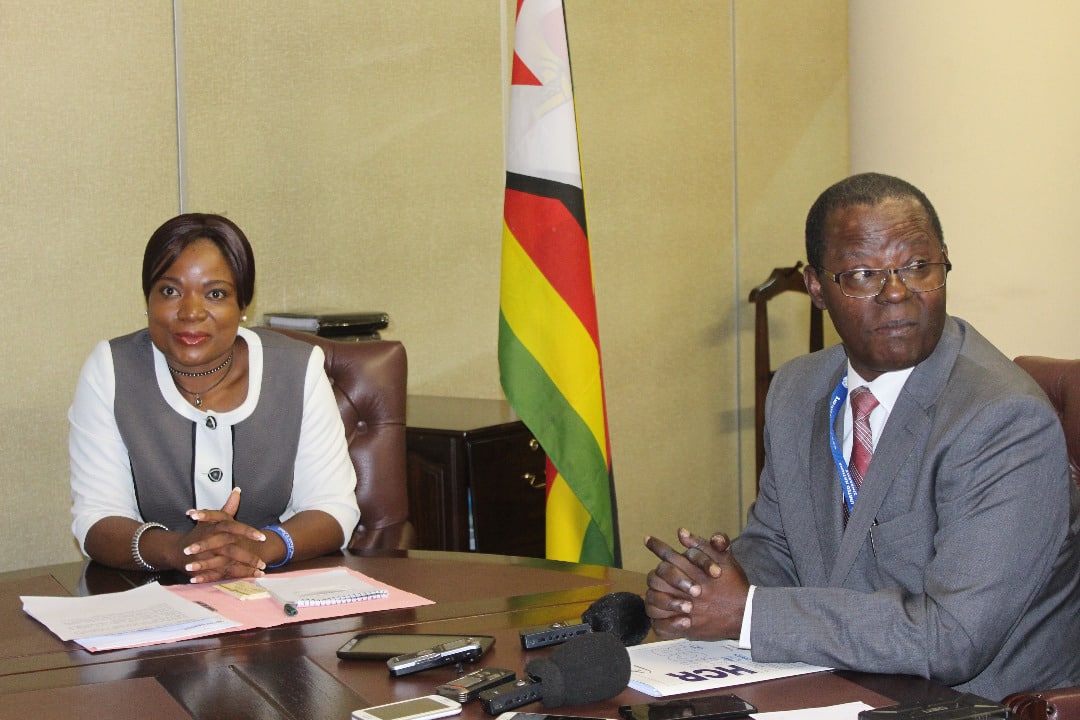By Audrey Rundofa and Patricia Mashiri
The country is currently holding over 11 000 refugees at Tongogara Refugee Camp. The United Nations High Commission for Refugees (UNHCR) has renewed its commitment to compliment Government of Zimbabwe’s efforts in managing the welfare of the refugees.
According to the Zimbabwe Inter-Agency Refugee Appeal of June 2017, the country is playing an important role in providing space for asylum and protection by availing land, warehouses, access to basic services, skilled personnel and documentation of the refugees.
Petronella Kagonye, the Minister of Labour and Social Welfare said her ministry was responsible for the welfare and assistance of refugees.
“The UNHCR has come for a courtesy call. As you are aware my Ministry responsible for the welfare and assistance of refugees under the 1951 United National Convention of the Status of Refugees,”Kagonye said.
Amongst the issues discussed were the Rwandan Cessation Clause which the government is finalising and once all the legal process are finalised, a joint statement shall be issued with UNHCR with the way forward.
The government has provided technical and financial support to the District Civil Protection Unit to undertake episodic profiling exercises to establish the number of Mozambicans in Zimbabwe before and after the initial relocation.
The Zimbabwean inter-agency refugee appeal says the registration and biometric enrolment was conducted for the Mozambicans in Tongogara Refugee Camp.
It also mentions that a rapid assessment in multi-sectorial thematic areas was undertaken to inform programming. In terms of food and security the World Food Programme (WFP) played a pivotal role by providing wet feeding at the reception centre which was later translated to weekly and monthly in kind ration and subsequently migrated to cash assistance.
165 residential plots and tents were allocated, construction of 60 temporary communal pit- lined latrines and 20 permanent pit-lined latrines and communal bathrooms were supported.
Toilet dips, water storage containers and water purification tablets, kitchen sets, blankets, jerry cans and mattresses were provided.
The Zimbabwe Refugee Act has generous provisions on, among others, refugee status determination, protection from arbitrary detention, protection from refoulement and the right to family unity.
Refugees and asylum seekers that present themselves to the authorities and declare themselves as such have unrestricted access to territory and are treated with the asylum regime pursuant to the 1961 convection and the 1969 OAU Convection has provided for by the Zimbabwean Refugee Act.






